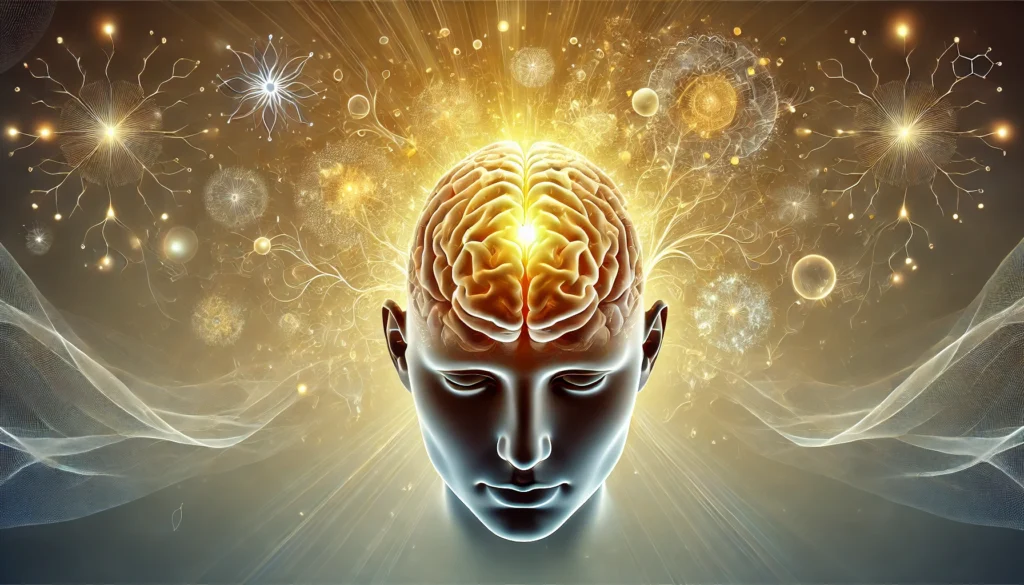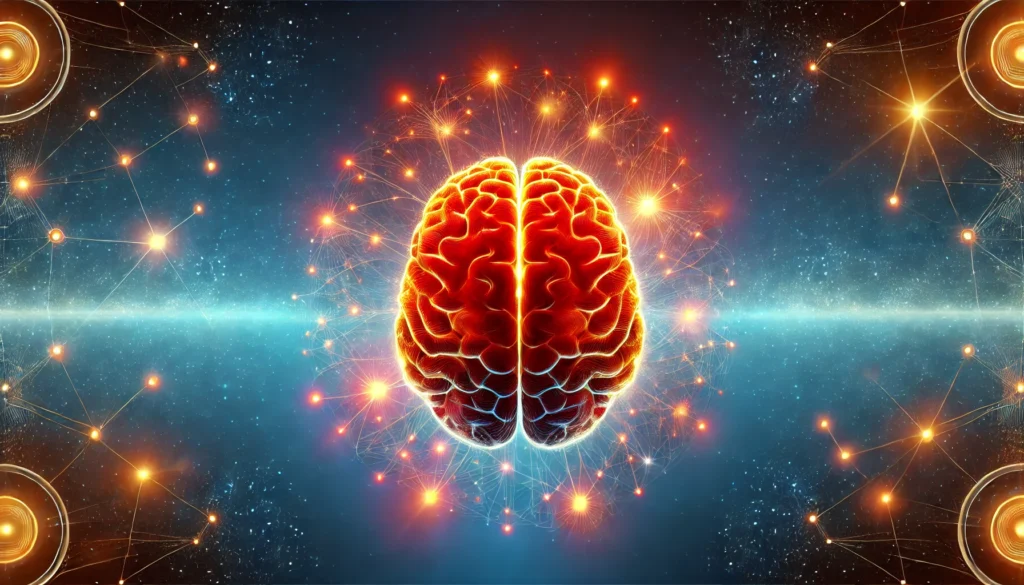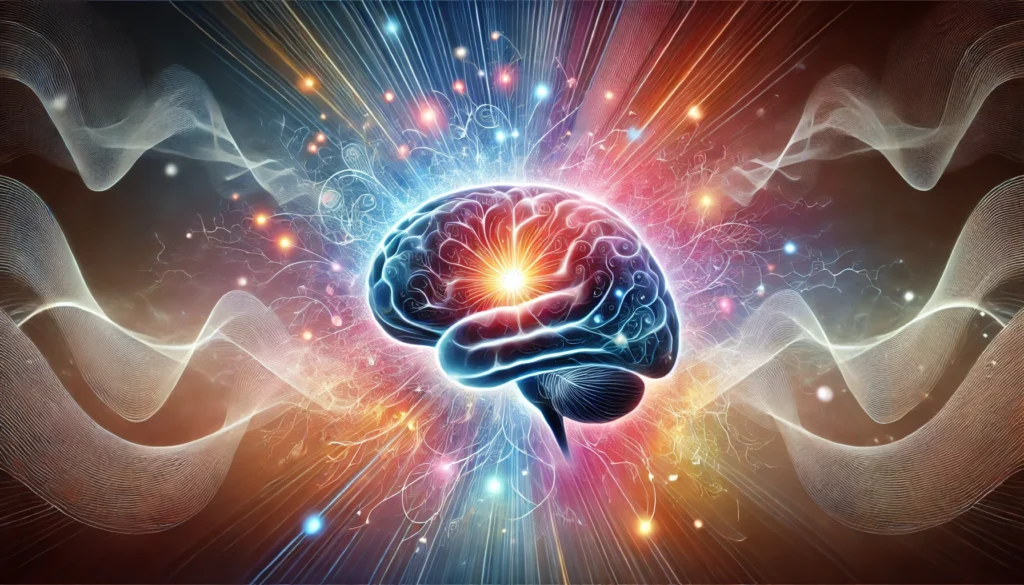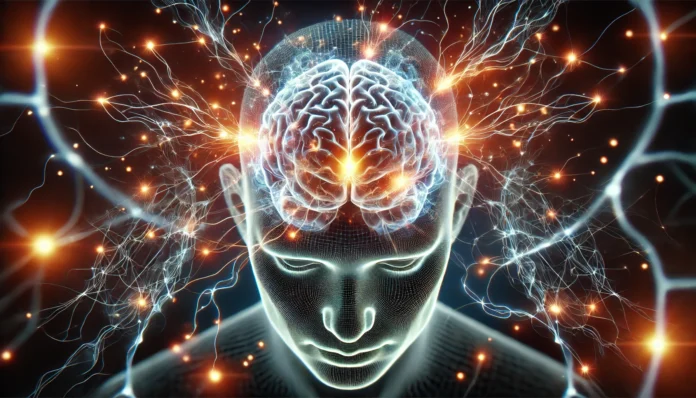Understanding the Role of the Frontal Lobe in Personality Development
The human brain is a complex organ responsible for every aspect of cognition, emotion, and behavior. Among its various regions, the frontal lobe plays a pivotal role in shaping an individual’s personality. As the largest and most evolved part of the brain, it is responsible for executive functions, decision-making, social behavior, and emotional regulation. Scientists have long studied the intricate ways in which the frontal lobe of the brain controls personality, demonstrating its profound impact on how people interact with the world around them. Damage to this area can result in drastic personality changes, affecting impulse control, reasoning, and emotional expression. Understanding the functions of the frontal lobe can provide valuable insights into human behavior, mental health, and neurodegenerative disorders that impact personality and cognition.
You may also like : Best Things for Brain Health: Expert-Backed Strategies to Keep Your Mind Sharp
The Anatomy of the Frontal Lobe and Its Functions
Located at the front of the brain, the frontal lobe is divided into different regions, each responsible for specific cognitive and behavioral functions. The prefrontal cortex, which is the most advanced part of the frontal lobe, is essential for higher-order thinking and personality expression. The frontal part of the brain function includes regulating emotions, controlling impulses, and enabling social adaptability. Another critical section, the motor cortex, governs voluntary movement, while Broca’s area, located in the left hemisphere, is responsible for speech production. The front left lobe of brain function is particularly relevant for language and logic, whereas the right side contributes more to creativity and emotional processing. The intricate structure and specialization within the frontal lobe highlight its central role in personality and cognitive abilities.
How the Frontal Lobe Influences Personality and Behavior
The question of what part of the brain controls personality has been extensively researched, with overwhelming evidence pointing to the frontal lobe. This region is crucial for self-awareness, moral reasoning, and impulse control, all of which define personality traits. The frontal lobe of brain function extends to social interactions, determining how individuals respond to stimuli and regulate their emotions. Damage to this area can lead to profound alterations in personality, resulting in increased aggression, apathy, or risk-taking behaviors. Studies of patients with frontal lobe injuries have revealed significant shifts in temperament, further solidifying its role in shaping personality. The ability to empathize, make ethical decisions, and maintain self-control are all governed by this critical brain region.
The Impact of Frontal Lobe Damage on Personality Changes
One of the most significant questions in neuroscience is: which lobe in the brain causes personality changes when damaged? The answer is unequivocally the frontal lobe. Case studies of individuals who have suffered traumatic brain injuries or neurodegenerative diseases demonstrate how damage to this part of the brain can alter personality and behavior. For example, individuals with damage to the prefrontal cortex often exhibit disinhibition, poor judgment, and an inability to regulate emotions. The famous case of Phineas Gage, a railroad worker who suffered severe frontal lobe damage, is a testament to the brain’s influence on personality. After his injury, Gage displayed drastic personality changes, including impulsivity and emotional instability, underscoring the crucial role of the frontal brain function in maintaining behavioral control.

The Relationship Between the Frontal Lobe and Cognitive Function
Beyond personality regulation, the frontal lobe of brain function extends to cognition, problem-solving, and memory. It allows individuals to plan, organize, and execute tasks effectively. The front lobes of the brain are essential for abstract thinking and adaptability, enabling people to adjust to new situations and challenges. When the frontal lobe is impaired, cognitive abilities decline, affecting an individual’s ability to make sound decisions or anticipate consequences. The question of what does the frontal lobe of the brain control is often answered by examining its role in logical reasoning, goal-directed behavior, and working memory. Individuals with frontal lobe dysfunction may struggle with concentration, experience difficulty in learning new information, and exhibit poor organizational skills.
How the Frontal Lobe Supports Emotional Regulation
Emotions play a fundamental role in personality, and the frontal lobe is integral to emotional regulation. The ability to process emotions, express empathy, and respond appropriately to social cues is rooted in the front part of brain function. Individuals with frontal lobe damage often exhibit mood swings, lack of impulse control, and difficulties in maintaining stable relationships. Neuroscientific research has demonstrated that the frontal lobe interacts with the limbic system to balance emotions and prevent overreactions to stress or external stimuli. Understanding the interplay between these brain regions helps in diagnosing and treating mental health disorders such as depression, anxiety, and bipolar disorder.
The Effects of Aging on Frontal Lobe Function
As individuals age, the frontal part of brain function gradually declines, affecting cognitive abilities and personality traits. Research on brain aging indicates that the prefrontal cortex experiences a reduction in neural connectivity, leading to slower processing speeds and decreased impulse control. The impact of aging on the front of brain function is evident in changes in decision-making abilities and emotional regulation. Older adults may become more risk-averse, experience memory lapses, and struggle with adaptability. However, engaging in cognitive activities such as problem-solving exercises and social interactions can help maintain frontal lobe function and slow down cognitive decline.

Strategies to Maintain a Healthy Frontal Lobe
Protecting the health of the frontal lobe is essential for preserving personality and cognitive function. Studies show that lifestyle factors such as exercise, proper nutrition, and mental stimulation contribute to maintaining frontal brain function. Activities that engage the brain, such as learning new skills, practicing mindfulness, and socializing, enhance neural plasticity and promote long-term brain health. Additionally, avoiding excessive alcohol consumption and managing stress levels are crucial for preventing damage to the frontal lobe. By implementing these strategies, individuals can support brain health and preserve their personality traits well into old age.
Frequently Asked Questions (FAQ) About the Frontal Lobe and Personality
1. Which lobe in the brain causes personality changes when damaged?
The frontal lobe is the primary brain region responsible for personality, behavior, and decision-making. Damage to this area can lead to significant personality changes, including impulsivity, emotional instability, and impaired judgment. The prefrontal cortex, a subdivision of the frontal lobe, plays a crucial role in self-awareness and social behavior. If the frontal lobe sustains injury, individuals may struggle with emotional regulation, exhibiting symptoms such as aggression or apathy. Studies on traumatic brain injuries and neurodegenerative disorders confirm that the frontal lobe of the brain controls aspects of personality that shape human interactions and ethical reasoning.
2. Is the frontal lobe related to personality changes in aging individuals?
Yes, the frontal lobe plays a central role in personality, and its function naturally declines with age. As neural connections weaken, older adults may experience shifts in decision-making, emotional responses, and impulse control. This age-related change can lead to increased susceptibility to mood disorders or social withdrawal. However, research suggests that engaging in mentally stimulating activities can help preserve frontal lobe function. Lifestyle habits such as regular physical exercise, social engagement, and proper nutrition contribute to maintaining cognitive vitality and slowing the decline of the front part of brain function.
3. Damage to what part of the brain could alter personality permanently?
The most critical region associated with personality changes is the prefrontal cortex, which is part of the frontal lobe. Damage to this area can result from traumatic brain injuries, strokes, or neurodegenerative diseases such as frontotemporal dementia. When the prefrontal cortex is impaired, individuals may exhibit poor impulse control, aggression, or inappropriate social behaviors. Unlike other brain regions, which may compensate for damage, the frontal lobe has a unique role in maintaining a stable personality, making permanent alterations more likely. Neuroscientists continue to study rehabilitation strategies to help individuals regain some control over their personality changes following frontal lobe damage.
4. What does the frontal lobe of the brain control in terms of social behavior?
The frontal lobe of the brain controls key aspects of social behavior, including empathy, moral reasoning, and impulse regulation. It enables individuals to assess social cues, respond appropriately to different environments, and maintain long-term relationships. When the frontal brain function is compromised, people may struggle with understanding emotions, leading to inappropriate responses in social settings. Research indicates that conditions such as antisocial personality disorder and certain mood disorders are linked to frontal lobe dysfunction. Social rehabilitation therapies often focus on enhancing cognitive flexibility and emotional regulation to counteract these deficits.
5. How does the front brain influence risk-taking and decision-making?
The frontal lobe plays a significant role in assessing risks, predicting outcomes, and making informed decisions. It helps individuals weigh the consequences of their actions before engaging in potentially harmful behaviors. When the front of brain function is impaired, risk-taking tendencies can increase due to a lack of impulse control. Studies on adolescents show that their frontal lobes are not fully developed, which explains their inclination toward riskier behavior compared to adults. Understanding how the frontal lobe processes risks and rewards is essential in fields such as psychology, economics, and even criminal behavior analysis.
6. What part of the brain controls personality stability over time?
The frontal lobes of the brain are responsible for maintaining personality stability by regulating emotions and behavior patterns. The prefrontal cortex ensures that individuals develop consistent personality traits that persist over time. If the frontal lobe experiences significant damage or degeneration, personality traits may shift drastically, sometimes resembling different psychiatric disorders. Longitudinal studies on personality stability suggest that while some traits remain constant, others can be influenced by changes in frontal part of brain function. This is particularly evident in individuals with frontal lobe injuries, where once-predictable behavior can become erratic or uncharacteristic.
7. What does the front left lobe of brain function contribute to cognitive abilities?
The front left lobe of brain function is primarily associated with logical reasoning, language processing, and analytical thinking. Broca’s area, a key region within the left frontal lobe, is crucial for speech production and grammatical structuring. Damage to this area can lead to expressive aphasia, where individuals struggle to articulate words while still comprehending language. The left frontal lobe also plays a role in problem-solving and structured thinking, which are essential for academic and professional success. Cognitive training exercises designed to stimulate this region can help improve verbal communication and analytical skills.
8. How does frontal part of brain function differ from other brain regions?
Unlike the occipital lobe, which processes visual information, or the temporal lobe, which handles auditory input and memory, the frontal part of brain function focuses on executive processes. This includes higher-order thinking, decision-making, and voluntary movement control. The frontal lobe interacts with other brain regions to ensure balanced cognitive function, integrating information from multiple sources before forming a response. Damage to the frontal lobe often has more profound consequences than injuries to other brain areas due to its involvement in a wide range of cognitive and behavioral functions. Neuroscientific advancements continue to explore how stimulating the frontal lobe can enhance cognitive performance and emotional intelligence.
9. How do neurodegenerative diseases affect the frontal lobes of the brain?
Neurodegenerative conditions such as Alzheimer’s disease and frontotemporal dementia significantly impact the frontal lobes of the brain. These diseases lead to the gradual deterioration of neurons, impairing cognitive functions like planning, judgment, and personality regulation. Individuals with frontotemporal dementia often experience drastic behavioral shifts, including inappropriate social behavior and emotional outbursts. Unlike Alzheimer’s, which initially affects memory, frontotemporal dementia primarily targets personality and decision-making skills. Researchers are actively investigating treatments to slow the progression of these diseases and improve quality of life for affected individuals.
10. Can frontal brain function be enhanced or restored after damage?
While some effects of frontal lobe damage may be permanent, rehabilitation strategies can help restore certain cognitive and behavioral functions. Neuroplasticity, the brain’s ability to reorganize and form new neural connections, plays a crucial role in recovery. Therapy methods such as cognitive rehabilitation, behavioral therapy, and mindfulness training can improve frontal brain function over time. Additionally, lifestyle factors such as regular physical activity, a nutrient-rich diet, and engaging in mentally stimulating activities contribute to maintaining brain health. Ongoing research into neuroregeneration and brain-computer interfaces may offer future possibilities for enhancing frontal lobe recovery in patients with brain injuries.

Conclusion: The Central Role of the Frontal Lobe in Personality and Behavior
The frontal lobe of the brain controls a vast array of cognitive and behavioral functions, making it a crucial determinant of personality and emotional stability. Understanding its role in regulating decision-making, impulse control, and emotional processing highlights the importance of brain health in overall well-being. Damage to the frontal lobe can lead to significant personality changes, emphasizing the need for early intervention and cognitive rehabilitation in cases of injury or neurological disorders. By maintaining a healthy lifestyle and engaging in cognitive exercises, individuals can support their frontal lobe function, preserving their personality and mental clarity for years to come. As research advances, our understanding of the frontal lobe will continue to expand, providing new insights into human behavior and cognitive enhancement strategies.
brain function and behavior, cognitive neuroscience, personality and brain structure, frontal cortex damage, brain injury and personality, executive function in the brain, neuropsychology of personality, brain health and aging, cognitive decline prevention, emotional regulation brain areas, prefrontal cortex role, decision making and the brain, impulse control neuroscience, brain plasticity and recovery, social behavior and cognition, mental health and brain function, neurological disorders and personality, traumatic brain injury effects, brain regions and their functions, cognitive rehabilitation strategies
Further Reading:
Personality in Frontal Lobe Disorders
The role of prefrontal cortex in cognitive control and executive function
What does the frontal lobe do?
Disclaimer
The information contained in this article is provided for general informational purposes only and is not intended to serve as medical, legal, or professional advice. While Health11News strives to present accurate, up-to-date, and reliable content, no warranty or guarantee, expressed or implied, is made regarding the completeness, accuracy, or adequacy of the information provided. Readers are strongly advised to seek the guidance of a qualified healthcare provider or other relevant professionals before acting on any information contained in this article. Health11News, its authors, editors, and contributors expressly disclaim any liability for any damages, losses, or consequences arising directly or indirectly from the use, interpretation, or reliance on any information presented herein. The views and opinions expressed in this article are those of the author(s) and do not necessarily reflect the official policies or positions of Health11News


